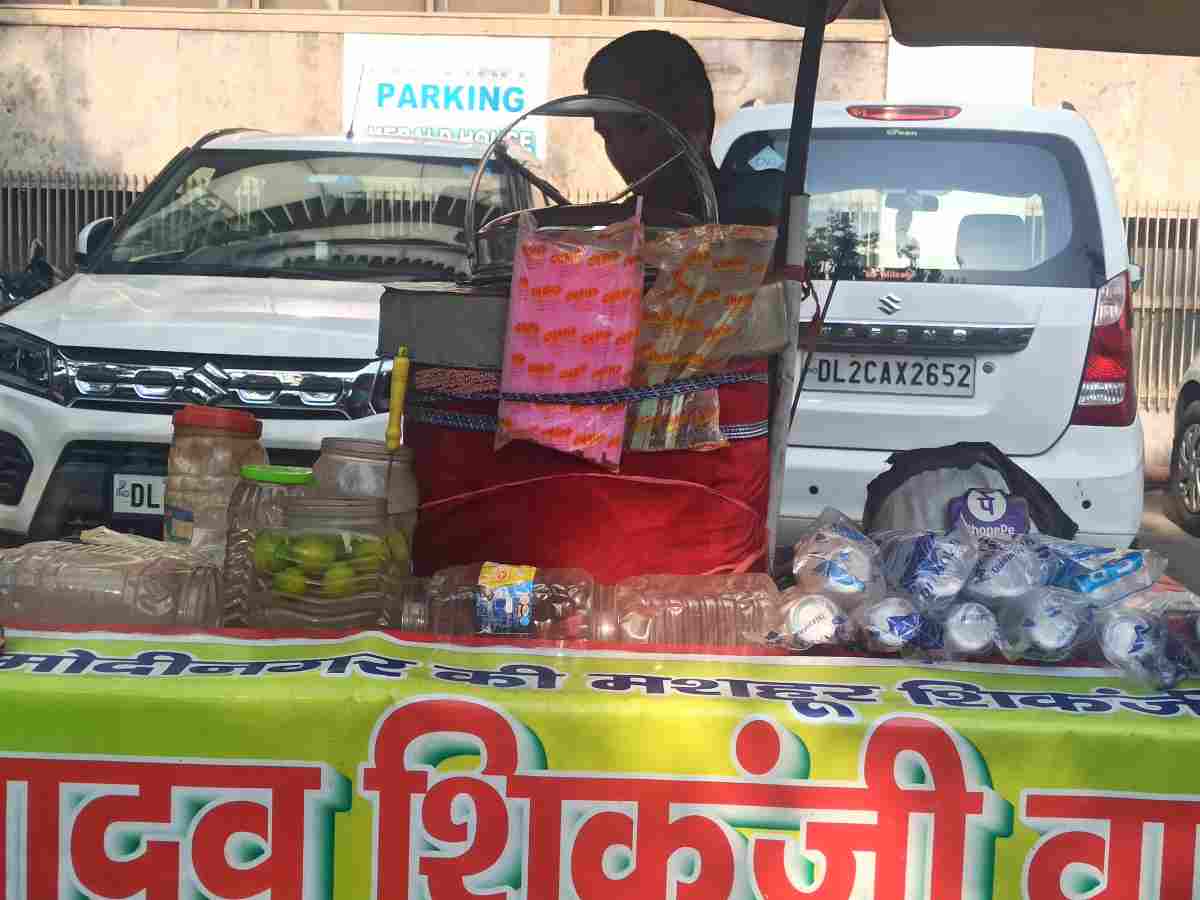
Lemonades provide relief to travellers under the scorching sun.
Delhi is witnessing record-breaking temperatures with its Mungeshpur weather office, located on the outskirts of Delhi, registering a historic 52.3 degrees Celsius.
Delhi residents are burning in the scorching sun as pedestrians and travellers alike hunt for shade to get some respite.
According to the Delhi Heat Action Plan released by Delhi Disaster Management Authority (DDMA), “The Indian subcontinent is experiencing higher temperatures that arrive earlier and stay for longer.”
The prevailing heatwave claimed its first victim in the Capital this week as a man from Bihar’s Darbhanga district lost his life. Reports claimed that the victim was residing without a cooler or a fan.
Also Read: Delhi temperature shatters records as Mungeshpur bakes at 52.3 degrees Celsius
According to the United Nations Office For Disaster Risk Reduction, a heatwave is an unusual period of hot weather persisting over a region for at least two consecutive days.
The days accounted for fall during the hot period of the year and based upon local climatological conditions.
Col. Sanjay Srivastava, Chairman of Climate Resilient Observing Systems Promotion Council (CROPC), an NGO which works in close conjunction with IMD, states that the Capital has not done enough preparation for the prevailing heatwave conditions.
“One can find constructed cool areas with provisions for water and other supplies in states such as Uttar Pradesh. However, no such facilities exist in Delhi,” he says.
Earlier, Lt. Governor VK Saxena directed officials to ensure a paid break for labourers from noon to 3 pm, provisions for water and coconut milk at construction sites and water pitchers at bus stands.
He also flagged the lack of preparation as insensitive on part of the Delhi government.
Uma Shankar (52), resident of Mundka, has been a vegetable vendor for the last 20 years.
“Fetching water becomes a task in this season as I have to travel to local neighbourhoods and not every one of them has public water taps,” he says.
Saurav Kumar (40), a toy vendor from Bihar’s Aurangabad district, echoes the same sentiment.
“The heat seems to be getting harsher by the year,” says Saurav as he finds a tree shade to rest for the afternoon.
He also complains of dizziness and fatigue caused by the heat.
According to Nandini Chopra, a nutrition expert and a senior research fellow, dehydration is one of the major problems faced by people during peaking temperatures.
“It is imperative for all age groups, especially the most vulnerable groups — pregnant women, elderly and children to keep themselves hydrated,” she says.
Five quiet corners across Delhi-NCR where February evenings slow the city down, letting breeze, fading…
A solo exhibition by Anjali Mittal exploring emotion, memory and intuition through layered blue-hued paintings
The incident occurred on Saturday near Bakhtawarpur. A senior police officer said a team rushed…
V K Saxena approves 20 per cent reservation, age relaxation, and test exemption for ex-Agniveers…
The fair at Gandhi Darshan brings together emerging and senior artists, showcasing over 200 artworks…
State Names Authority approves renaming of two metro stations and modifies seven others, aligning station…